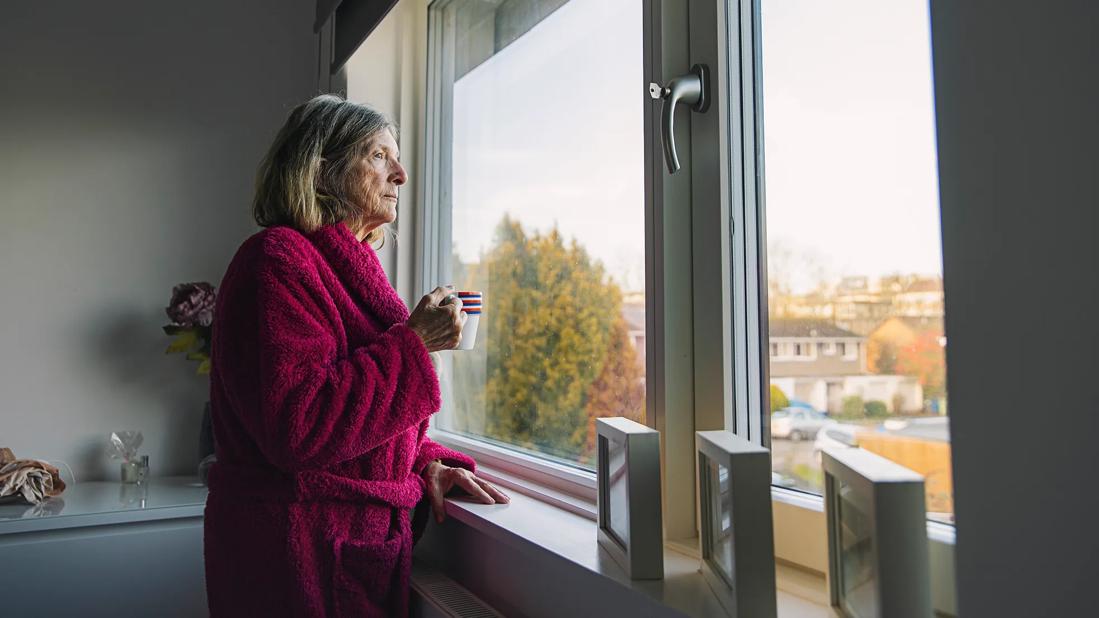Reduced activity and isolation are associated with depression

The consumer news media has published stories of older adults feeling isolated during the COVID-19 pandemic. A study conducted by Lee Anne Siegmund, PhD, RN, ACSM-CEP, Nurse Scientist II at Cleveland Clinic, and published as a journal pre-proof Aug. 20, 2021 in Geriatric Nursing, reveals emotional suffering that older adults may have during times of imposed social distancing.
Advertisement
Cleveland Clinic is a non-profit academic medical center. Advertising on our site helps support our mission. We do not endorse non-Cleveland Clinic products or services. Policy
Dr. Siegmund performed a path analysis to evaluate the relationship between physical activity, social isolation and depression among older adults during COVID-19. “We know there is an inverse relationship between physical activity and depression. There is quite a bit of literature in which authors found that the more you exercise, the less likely it is that you will be depressed,” says Dr. Siegmund. “I wondered if social isolation plays a role in this. Are people who are socially isolated due to COVID-19 depressed and less physically active?”
Dr. Siegmund collaborated with Karen Distelhorst, PhD, APRN, GCNS-BC, Nurse Scientist I at Cleveland Clinic, on the cross sectional, descriptive, correlational design utilizing survey methodology. The final sample included 477 surveys from adults aged 65 and older. They measured the following variables using the tools listed:
Participants also completed a demographic questionnaire.
“We hypothesized several specific pathways that included higher social isolation (imposed social distancing), lower physical activity and personal factors, such as older age, lower income and lower education, would lead to higher depression during COVID-19,” says Dr. Siegmund. “And the results panned out fairly close to what we thought. Both physical activity and social isolation predicted depression among older adults.”
Advertisement
Of the variables that predicted depression among older adults during COVID-19, social isolation and decreased physical activity accounted for 44% of it. “Since social isolation is modifiable, learning its importance in depression can lead to interventions that address it,” says Dr. Siegmund.
Dr. Siegmund hopes the results of the study will encourage clinicians to not only screen for depression in older adults, but also ask important questions about what’s going on in their lives to cause the depression.
“So many things can result in social isolation that can lead to depression,” she says. “Older adults may lose all of their friends to death, move to assisted living or skilled nursing home facilities, or have adult children who no longer visit or rarely contact them.” She says nurses can play a key role in ensuring older adults stay active and connected to others.
“Nurses can educate older adults who are socially isolated, as well as advocate for programs and policies that promote ways for them to connect to others,” says Dr. Siegmund.
Advertisement
Advertisement

Researchers explore the mental and physical benefits of social prescribing

Multidisciplinary approach helps address clinical and psychosocial challenges in geriatric care

Effective screening, advanced treatments can help preserve quality of life

Study suggests inconsistencies in the emergency department evaluation of geriatric patients

Auditory hallucinations lead to unusual diagnosis

How providers can help prevent and address this under-reported form of abuse

How providers can help older adults protect their assets and personal agency

Recognizing the subtle but destructive signs of psychological abuse in geriatric patients